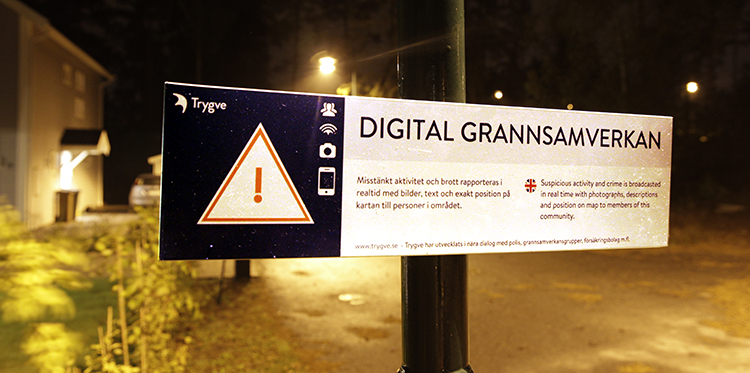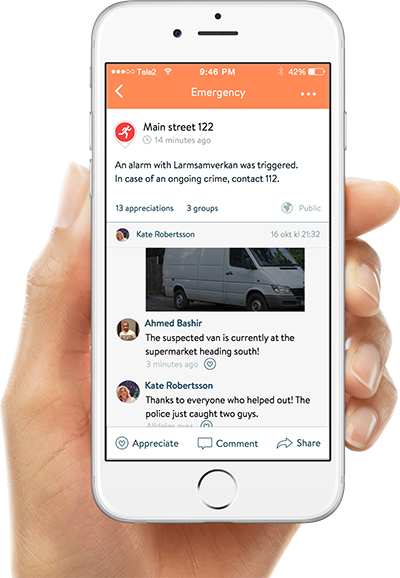Swedes turn to app to guard their neighbourhoods
It's every parent's nightmare. You lose track of your 4-year-old at a playground, and the next thing you know, and you're running around, frantically asking people if they've seen your child.

But when a mother in the Stockholm suburb of Årsta recently discovered her daughter had disappeared from a neighbourhood playground, her first step was to open an app on her smartphone.
Using the "digital neighbourhood watch" app, Trygve, she put out the word that her daughter was missing, and a search party was organized within minutes. They found the girl in under a half an hour.
Trygve is enabling a growing number of Swedes to guard against crime and help each other in emergencies. The app immediately communicates to groups and individuals any number of situations users wish to report, from armed robberies to stray dogs.

Developed by former students at Stockholm's KTH Royal Institute of Technology, the app has gained a following among ordinary citizens, housing associations and even police departments. Trygve's developer expects the number of users to increase tenfold over the next six months.
"The goal is to make neighbourhoods safer areas worldwide," says Per Källgården, a self-described "social entrepreneur" and founder of United Eyes, the company behind development of the app.
As reported recently, in KTH Magazine, Källgården says that 90 percent of alerts on Trygve are responded to within two minutes,
"So far we have about 10,000 users in Sweden," Källgården says. "If the growth in downloads continues, we'll have another 100,000 users in six months." The app will be launched next year in Germany, he says.
Trygve app has a location-based feature and is free of charge; but users can pay in order to link it to their home security systems.
Which isn't a bad idea. More police departments are beginning to monitor activity on the network, though Källgården stresses that the app does not replace the European 112 emergency services. United Eyes is also initiating license agreements with authorities, such as crime prevention councils, the police and social services, and with real estate companies who use the app.
Källgården says he formed the idea for the app because his wife felt uneasy about walking from the metro station alone at night. "It is a major social problem that people do not feel secure in their surroundings," he says.
Yet he says that the app proves there are many people who are ready and willing to help strangers.
"I think that society is changing fundamentally," he says. "This is particularly noticeable in the current refugee crisis. Civilians are prepared to do much to help their fellow human beings.

"We want to take advantage of that potential. It's important that people feel secure when they know they have people around them whom they can turn to."
The app has not only become popular in large cities, but also among people in small rural villages who know that the police are an hour's drive away.
But Trygve does not appear to have inspired vigilantism. Rather, he says, "We noticed that people monitor and keep track of situations until the police come. Some have also become witnesses in police investigations."
In a recent case, neighbours in one residential community were alerted to the presence of a suspicious man in someone's yard. Word spread on Trygve and the neighbours followed the man's progress from their windows, which enabled the police to stop the suspect.
They soon found out that he was responsible for area car break-ins and an attempted home burglary.
Ann-Katrin Öhman/David Callahan